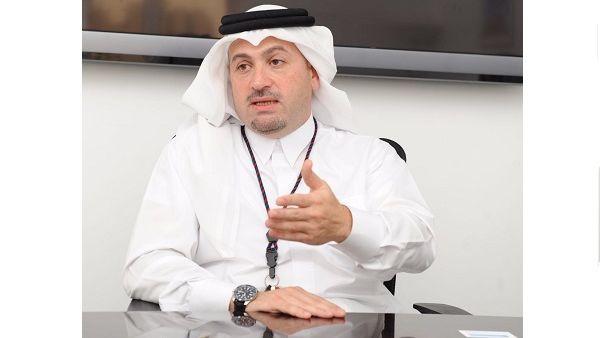HMC Offers Advice on Avoiding Swimmer’s Ear

As the temperatures begin to rise and the start of summer approaches, children are beginning to spend more time swimming, prompting an ear, nose, and throat specialist at Hamad Medical Corporation (HMC) to caution parents about the importance of taking steps to limit the risk of ear infections in their children.
According to Dr. Faisal Abdulkader, Senior Consultant Otolaryngologist, Head and Neck Surgeon at HMC, too much moisture in the ear can irritate and break down the skin in the canal, letting bacteria or fungi enter the ear. He says complaints about otitis externa, also known as swimmer's ear, are more frequent during the summertime when swimming is common and children spend more time in the water.
“Letting children splash around in the pool or the sea is a great way to promote physical activity and help them stay cool. But all that time in the pool can lead to some unwanted consequences, namely swimmer’s ear,” says Dr. Abdulkader.
He explains that the condition is typically easy to identify and results in redness and swelling of the ear canal and outer ear. Dr. Abdulkader says the infection, which is caused by water remaining in the ear and subsequent bacteria growth, is a one-time occurrence for many patients but can become a chronic problem, especially if treatment is neglected.
“Redness in the outer ear along with some pain, tenderness, and a feeling of fullness, itchiness, and irritation, can all be symptoms of swimmer’s ear. Patients with swimmer’s ear may also experience swelling in the outer ear and lymph nodes, loss of appetite, and have problems sleeping. The patient’s hearing may also be temporarily affected. While the condition is normally short-lived, it can become severe if treatment is neglected and the infection progresses,” says Dr. Abdulkader.
Dr. Abdulkader says the high temperature of many swimming pools makes water a suitable environment for the growth of bacteria that cause inflammation. He says while medical intervention is not always necessary, it is important for patients to see their primary care doctor if they suspect an infection, especially in the case of younger children.
“If the condition persists for longer than 24-hours, especially in the case of younger children, it’s important to consult with your primary care doctor to avoid any complications. In most cases, eardrops and over-the-counter medications to treat pain are effective but more severe cases may call for oral antibiotics to fight the infection and steroids to reduce swelling of the ear canal. It is important to seek medical attention from one’s family doctor prior to the condition worsening and becoming an emergency,” says Dr. Abdulkader.
While HMC’s Ear, Nose, and Throat (ENT) Department predominantly cares for patients with complex disease of the ear, nose, and throat, specialists at the department receive referrals from the Emergency Department and treat patients with chronic ENT conditions referred from primary healthcare centers.
Dr. Abdulkader cautioned against the use of home treatments, such as concoctions to flush the ears and the insertion of cotton swabs and other foreign objects into the ear and he highlighted steps that could be taken to help prevent swimmer’s ear.
“The use of earplugs when swimming and over-the-counter solutions that can help break up blockages can be useful in preventing ear infections. Using a hair dryer on a very low setting or a soft towel to dry the outer ears after swimming can also be effective. Avoid putting cotton swabs or other foreign objects into the ear, as these can push material deeper into the ear canal,” says Dr. Abdulkader.
Background Information
Hamad Medical Corporation
Hamad Medical Corporation (HMC) is the main provider of secondary and tertiary healthcare in Qatar and one of the leading hospital providers in the Middle East.
For more than four decades, HMC has been dedicated to delivering the safest, most effective and compassionate care to all its patients.





